In order to generate a more inclusive dataset of Pseudomonas genes mapped to putative in-paralogs and putative orthologs in other Pseudomonas species/strains, we developed a Pseudomonas Orthologous Groups classification system.
To generate ortholog groups, pair-wise DIAMOND searches were run on all genomes in the database to find reciprocal best hits (RBHs) for each gene. These analyses often resulted in multiple candidate genes for RBH status, which were narrowed down by examining the similarity between the query's flanking genes and the hit's flanking genes. If two candidate genes were directly adjacent, they where both accepted as RBHs that involve putative in-parology.
Pairwise intra-genome DIAMOND searches were also performed to acquire in-paralog information (i.e. gene duplications occurring after species divergence). If two genes in one genome were reciprocally more similar to each other than to any gene in the other genomes, the two genes were designated putative in-paralogs. Ortholog groups are built by starting with a seed gene and then adding all genes to which there is a RBH or in-paralog relationship.
Every new gene added to an ortholog group was then treated as a seed gene and the addition process was repeated until all qualifying genes had been added. The result was the development of orthologous groups, specifically generated for Pseudomonas species genomes, which can be used to sort search results.
Pseudomonas Ortholog Group POG004897
| Strain | Locus Tag | Description | Same-Strain Members | Fragment ? | |
|---|---|---|---|---|---|
| Pseudomonas aeruginosa AZPAE14917 | NS33_RS24845 |
cytochrome
|
2 same-strain members: NS33_RS22495 NS33_RS24845 |
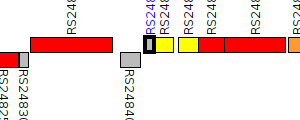
|
|
| Pseudomonas aeruginosa AZPAE14925 | NS41_RS03700 |
cytochrome
|
2 same-strain members: NS41_RS03700 NS41_RS27440 |

|
|
| Pseudomonas aeruginosa AZPAE14925 | NS41_RS27440 |
cytochrome C
|
2 same-strain members: NS41_RS03700 NS41_RS27440 |
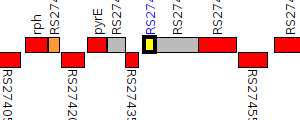
|
|
| Pseudomonas aeruginosa AZPAE14928 | NS44_RS26410 |
cytochrome C
|
2 same-strain members: NS44_RS26410 NS44_RS08175 |
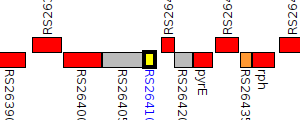
|
|
| Pseudomonas aeruginosa AZPAE14928 | NS44_RS08175 |
cytochrome
|
2 same-strain members: NS44_RS26410 NS44_RS08175 |
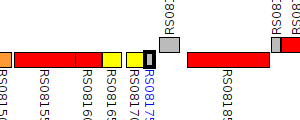
|
|
| Pseudomonas aeruginosa AZPAE14931 | NS47_RS26660 |
cytochrome c(mono-heme type)
|
2 same-strain members: NS47_RS26660 NS47_RS05725 |
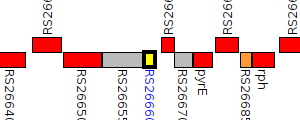
|
|
| Pseudomonas aeruginosa AZPAE14931 | NS47_RS05725 |
cytochrome
|
2 same-strain members: NS47_RS26660 NS47_RS05725 |
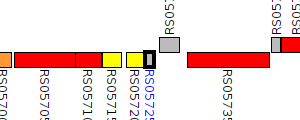
|
|
| Pseudomonas aeruginosa AZPAE14934 | NS50_RS20830 |
cytochrome
|
2 same-strain members: NS50_RS20830 NS50_RS24775 |
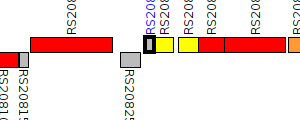
|
|
| Pseudomonas aeruginosa AZPAE14934 | NS50_RS24775 |
cytochrome C
|
2 same-strain members: NS50_RS20830 NS50_RS24775 |
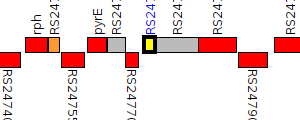
|
|
| Pseudomonas aeruginosa AZPAE14935 | NS51_RS25855 |
cytochrome
|
2 same-strain members: NS51_RS25855 NS51_RS07490 |
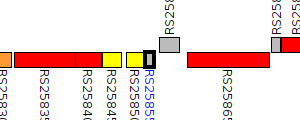
|
|
| Pseudomonas aeruginosa AZPAE14935 | NS51_RS07490 |
cytochrome C
|
2 same-strain members: NS51_RS25855 NS51_RS07490 |
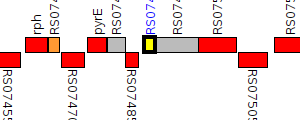
|
|
| Pseudomonas aeruginosa AZPAE14945 | NS61_RS18535 |
cytochrome
|
2 same-strain members: NS61_RS18535 NS61_RS29825 |
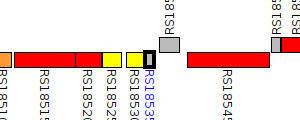
|
|
| Pseudomonas aeruginosa AZPAE14945 | NS61_RS29825 |
cytochrome C
|
2 same-strain members: NS61_RS18535 NS61_RS29825 |
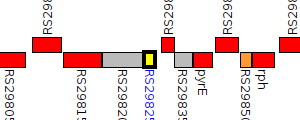
|
|
| Pseudomonas aeruginosa AZPAE14955 | NS71_RS16465 |
cytochrome
|
2 same-strain members: NS71_RS16465 NS71_RS02015 |
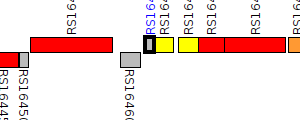
|
|
| Pseudomonas aeruginosa AZPAE14955 | NS71_RS02015 |
cytochrome C
|
2 same-strain members: NS71_RS16465 NS71_RS02015 |
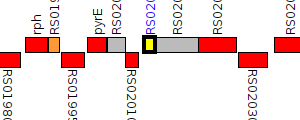
|
|
| Pseudomonas aeruginosa AZPAE14963 | NS79_RS21480 |
cytochrome C
|
2 same-strain members: NS79_RS21480 NS79_RS06925 |
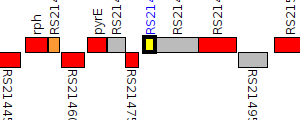
|
|
| Pseudomonas aeruginosa AZPAE14963 | NS79_RS06925 |
cytochrome
|
2 same-strain members: NS79_RS21480 NS79_RS06925 |
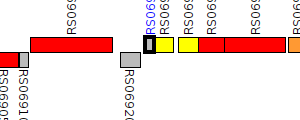
|
|
| Pseudomonas aeruginosa AZPAE14980 | NS95_RS21045 |
cytochrome
|
2 same-strain members: NS95_RS21045 NS95_RS24710 |
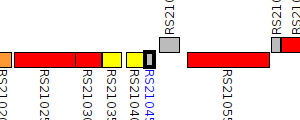
|
|
| Pseudomonas aeruginosa AZPAE14980 | NS95_RS24710 |
mono-heme cytochrome C
|
2 same-strain members: NS95_RS21045 NS95_RS24710 |
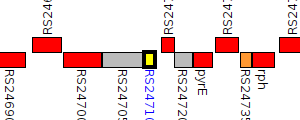
|
|
| Pseudomonas aeruginosa AZPAE14988 | NT03_RS07400 |
cytochrome C
|
2 same-strain members: NT03_RS07400 NT03_RS09795 |
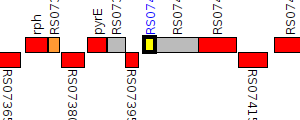
|